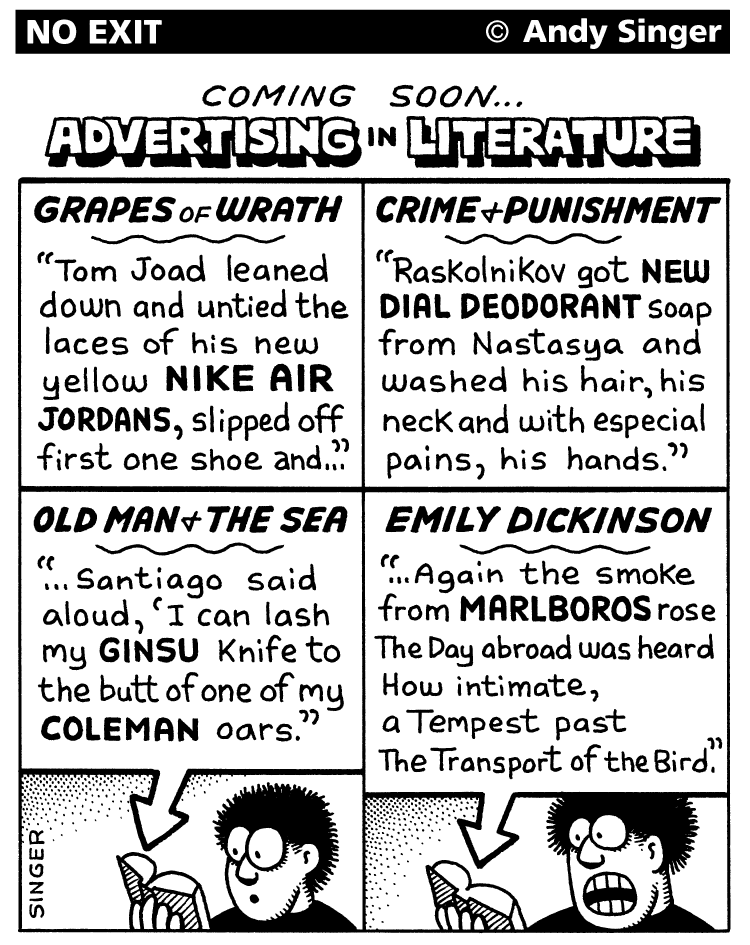Paul Whybrow
Full Member
We discussed product placement last year, in a thread started by @Katie-Ellen Hazeldine, but this article in Vox reveals some startling examples of product placement by authors and screenwriters:
The unsuccessful history of product placement in books, from Bulgari to Sweet’N Low
When a writer signs a contract agreeing to mention a company or product a certain number of times in their story, then the book is really an extended commercial...more so, if the company's name is part of the title, as in Fay Weldon's The Bulgari Connection. Although a fashion blogger turned novelist, called Riley Costello, is attempting to patent the term 'shopfiction', it seems that the notion of promoting product names in books has declined in use, largely because books are seen to be less influential these days.
Setting a story in the world of fashion or music, come to that, it would be impossible not to name names, as both activities are driven by competition between labels and brands for clothing, perfume and instruments. That's not necessarily product placement.
Some commercial names become common expressions, such as to hoover, google it, jacuzzi, q-tips and tupperware.
Product placement is not usually an issue with Crime writing, but it's something I've taken into account in penning my Cornish Detective novels. Without meaning to infer that what vehicles my regular characters drive are in any way desirable, I mention their cars, bicycles and motorcycles more as a way of showing their characters. I've read some crime novels that didn't describe the make of car at all, which seemed daft, for the author happily named the detective's gun and even which ammunition it was loaded with.
I'm working my way through James Oswald's Inspector McLean series. I'd hazard a guess, that Oswald admires and maybe owns an Alfa Romeo, for his protagonist drives a classic Alfa, wildly unsuitable for his job, and a more modern Alfa only lasted one book before it was destroyed when a building exploded.
I tend not to have my detective protagonist say "google it" when his officers are searching for information while staking out a suspect's house, instead he asks someone to look on their smartphone. One of my beta readers called me on what she thought might be product placement, as I'd had my main character order a collectable Victorian book on orchards from AbeBooks, which seemed the most likely place that he would have found it, and that sounded less clumsy than saying "an online book retailer." Admittedly, when I wrote it, I thought some readers might benefit from knowing about AbeBooks, but I don't see any money coming my way! Nor will I get anything for mentioning Taser, the electroshock weapon, which has been used a couple of times in my stories.
Nor will I get anything for mentioning Taser, the electroshock weapon, which has been used a couple of times in my stories. 
How do you handle the issue of mentioning product or company names?

The unsuccessful history of product placement in books, from Bulgari to Sweet’N Low
When a writer signs a contract agreeing to mention a company or product a certain number of times in their story, then the book is really an extended commercial...more so, if the company's name is part of the title, as in Fay Weldon's The Bulgari Connection. Although a fashion blogger turned novelist, called Riley Costello, is attempting to patent the term 'shopfiction', it seems that the notion of promoting product names in books has declined in use, largely because books are seen to be less influential these days.
Setting a story in the world of fashion or music, come to that, it would be impossible not to name names, as both activities are driven by competition between labels and brands for clothing, perfume and instruments. That's not necessarily product placement.
Some commercial names become common expressions, such as to hoover, google it, jacuzzi, q-tips and tupperware.
Product placement is not usually an issue with Crime writing, but it's something I've taken into account in penning my Cornish Detective novels. Without meaning to infer that what vehicles my regular characters drive are in any way desirable, I mention their cars, bicycles and motorcycles more as a way of showing their characters. I've read some crime novels that didn't describe the make of car at all, which seemed daft, for the author happily named the detective's gun and even which ammunition it was loaded with.
I'm working my way through James Oswald's Inspector McLean series. I'd hazard a guess, that Oswald admires and maybe owns an Alfa Romeo, for his protagonist drives a classic Alfa, wildly unsuitable for his job, and a more modern Alfa only lasted one book before it was destroyed when a building exploded.
I tend not to have my detective protagonist say "google it" when his officers are searching for information while staking out a suspect's house, instead he asks someone to look on their smartphone. One of my beta readers called me on what she thought might be product placement, as I'd had my main character order a collectable Victorian book on orchards from AbeBooks, which seemed the most likely place that he would have found it, and that sounded less clumsy than saying "an online book retailer." Admittedly, when I wrote it, I thought some readers might benefit from knowing about AbeBooks, but I don't see any money coming my way!
How do you handle the issue of mentioning product or company names?

